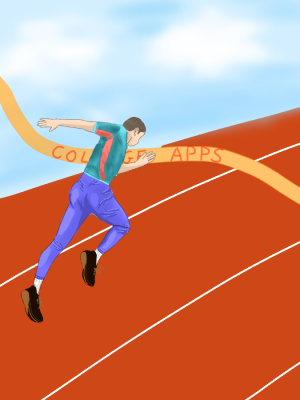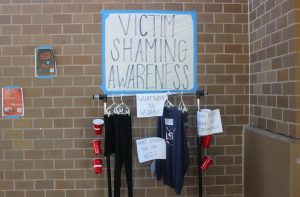Student-led nonprofits sell hand-made goods as quarantine continues
January 20, 2021
Dougherty student-led non-profit businesses have been selling clothing and other hand-made products online during quarantine to donate to charitable organizations that tackle the world’s most pressing challenges such as the COVID-19 pandemic, racism, homophobia, and protecting the planet.
Despite being isolated in quarantine, many DVHS students have banded together for the first time to create and sell affordable items.
“Ever since school started, we haven’t been doing much. People are coping with their new living conditions by finding new hobbies to focus on their enjoyment,” DVHS sophomore Katie Zheng said. In the case of Zheng, she designs and sews embroidered hoodies in her free time to sell on Instagram.
“I was really into fashion. I liked watching fashion shows when I was younger and liked the idea of making the clothes,” she added.
Quarantine may have allowed Zheng to pursue her dreams, but for many other student-led businesses, the process hasn’t been as easy.
“Making a trip to people’s doorsteps has been manageable but it would be easier if we weren’t in quarantine,” sophomores Ayushi Mody and Lauren Chen said. Together, they are the founders of Shop Seadragon, a student-led nonprofit that sells handmade keychains, earrings, and other affordable products while donating their profits to COVID-19 relief charities and global organizations fighting racism and homophobia.
“We started near the end of April. Ayushi and I haven’t met up in person the entire time,” Chen added.
Even with these difficulties, the business has exceeded expectations with 92 orders as of Nov. 2 and $700 in total profits. Chen explains that since they sell smaller handmade products rather than clothing, part of the appeal is most of their items are affordable.
And every order counts when raising money for an urgent cause.
“We donate to organizations that work toward increased lab-capacity and research efforts, send personal protective equipment and testing kits to those in need, and provide support for families in vulnerable nations,” Chen states.
For senior Stephanie Su, a co-founder of Project CreateAFuture, quarantine was an opportunity to expand into the clothing industry as a complement to her original message of saving the planet.
“Earlier on, we sold handmade button pins and stickers, but [we] now buy blank sweatshirts and tees and press custom-made designs onto them using dye-sublimation printing, an eco-friendly process that limits our carbon footprint,” she explained.
Project CreateAFuture has sold more than 50 sweatshirts and started making baby tees in July. They have since partnered with companies centered around environmental preservation such as Barnana, a company that reduces food waste by selling potassium-enriched banana bites.
But even for Project CreateAFuture, operating within quarantine hasn’t been simple.
“With everyone home, the demand for clothing has dropped significantly. Even so, our message is strong and our customers know their money is being put toward saving the planet,” explains Su.
Dougherty student-led nonprofit organizations depend on the public’s help to continue uplifting communities through resolving the COVID-19 pandemic, fighting racism and homophobia, and striving for sustainability to protect the planet. People can donate by checking out Aster.apl, Shop Seadragon, and Project CreateAFuture on Instagram to follow their directions on how to purchase their hand-made goods.



